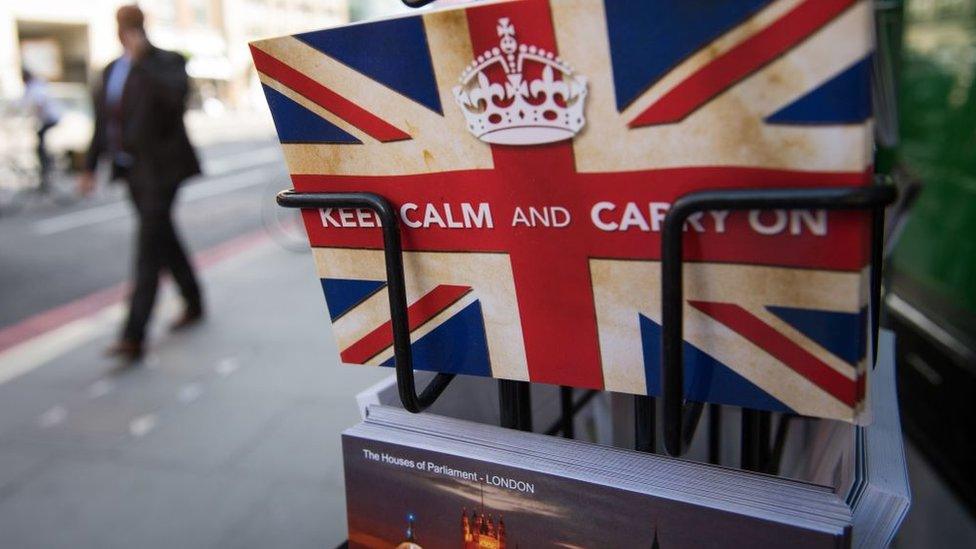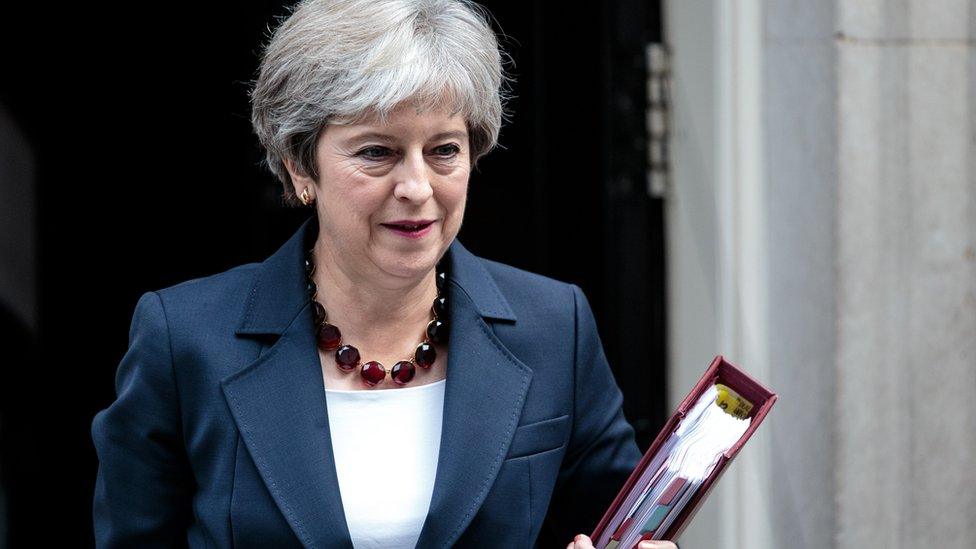Keep calm and carry on - Theresa May's Brexit strategy
- Published
- comments

Before 'keep calm and carry on' was a phrase that appeared on cushions, mugs, fridge magnets, and memes, it was a useful phrase to describe a particularly British attitude demonstrated by unflashy politicians who ignored (or should we say tried to ignore) colleagues who were looking for limelight, concentrated on what they were trying to get done and went back for more when times got rough.
And, if you can forget the over-use of what was a wartime propaganda phrase, it is still an instruction that is useful to characterise much of the prime minister's attitude. Indeed, when she's chosen a more dramatic tack it sometimes has not exactly gone well. Calling the election in 2017, her biggest strategic mistake, was an entirely unnecessary drama.
And as the real crunch period for Brexit approaches, KCACO (surely there's a Whitehall acronym for this somewhere) is firmly the prime minister's approach.
And despite the disagreements in the Tory party being ventilated every moment, Theresa May has, in public at least, little intention of overreacting - if reacting at all.
The new heat of the Tory despair and disagreements is because we are now, at last you might say, nearing at least the beginning of the end of the Brexit process.
There is less than a school term to go before the overall political deal is meant to be done. The stakes therefore are huge. And when times are anxious, the smallest thing can cause outrage or ecstasy.
So in this kind of political atmosphere, every word, every warning, every stray comment, every indiscretion can send people screaming to slam the panic button.
Inside government the plan is to keep going, take the knocks, carry on, however strong the resistance is, and to make a more determined effort to try to persuade people of the merits of their proposal.
There is frustration inside government that the prime minister hasn't made more effort to expound the benefits of the Chequers approach. She did, after all, make chunky speeches on previous occasions when there were big developments in the government's thinking. Not this time.
But in the frenetic run-up to the Tory conference, government ministers will be despatched around the country to at least try to get Tory Party members on side.

But the calculation inside government is, as it has been throughout this very bumpy road, that in the end, there will be a Brexit deal and that a majority of MPs will be too alarmed at the prospect of no deal with the EU, which would mean no two year period of getting used to it, to do more than flirt with the notion of voting it down.
In the end therefore, the government's assumption is that a deal would go through because of old-fashioned common sense.
Here's the thing - politics is not always governed by common sense. People are also motivated by conviction, by ideology, by identity, by emotion, and a different kind of common sense.
To many Tories in government it is common sense to try to stay as close to the EU as possible to try to minimise disruption. To many others, that's simply the wrong way to look at Brexit.
And those Conservatives who want looser ties are very serious about what they are trying to do which is no less than force her to change tack.
Theresa May is trying very hard to KCACO. She's showing no sign of budging - perhaps her deal will acquire a sense of inevitability. But despite warmer words from Brussels, at home with no majority Theresa May won't have the luxury of ignoring her critics forever.